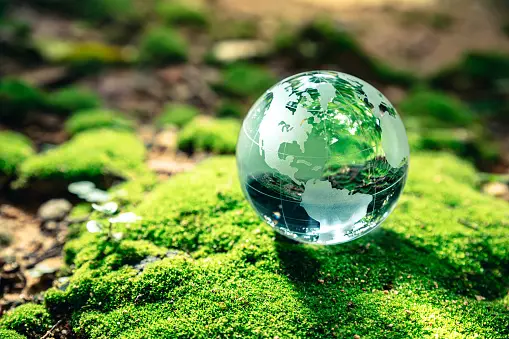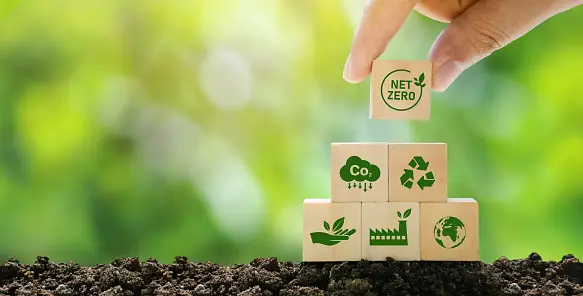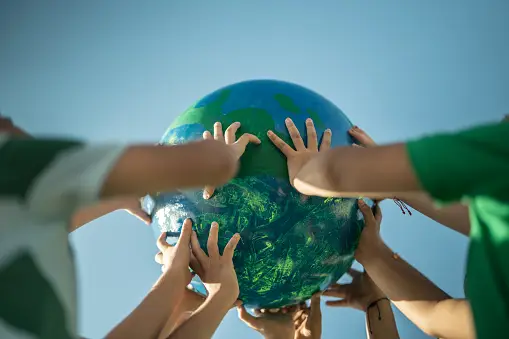
Ecology and ecosystems play a crucial role in understanding the intricate connections between organisms and their environment. In 2023, as we strive to create a sustainable future, it is essential to stay informed about the latest developments in the field of ecology.
Biodiversity Hotspots
Biodiversity hotspots are regions that house an exceptionally high number of unique species. In 2023, these hotspots continue to face threats due to habitat loss, climate change, and human activities. Protecting these areas is crucial to safeguard the rich biodiversity they harbor.
Climate Change Impact
Climate change continues to have a profound impact on ecosystems worldwide. Rising temperatures, changing rainfall patterns, and sea-level rise are altering habitats and disrupting the delicate balance of ecosystems. Understanding these changes is essential to develop effective strategies for climate change mitigation and adaptation.
Restoration Ecology
Restoration ecology focuses on rehabilitating ecosystems that have been damaged or degraded. In 2023, there is an increasing emphasis on restoration projects to revive ecosystems and enhance their resilience. Restoring habitats benefits both the environment and the communities that depend on them.
Urban Ecology

As cities expand, urban ecology gains significance. It explores the ecological processes within urban areas, aiming to create sustainable cities that support biodiversity and human well-being. In 2023, innovative urban planning and green infrastructure are being implemented to foster healthier urban ecosystems.
Read More: How Does Gene Therapy Work In 2023?
Ecosystem Services
Ecosystem services are the benefits that humans derive from nature, such as clean air, water, and pollination. Recognizing the value of these services is vital for sustainable development. In 2023, efforts are being made to integrate the concept of ecosystem services into decision-making processes and policy frameworks.
Plastic Pollution
Plastic pollution poses a significant threat to ecosystems, particularly marine environments. In 2023, there is a growing awareness of the harmful effects of plastic on wildlife and the need for effective waste management systems. Sustainable alternatives and increased recycling efforts are being pursued to combat plastic pollution.
Conservation Technology

Advancements in technology are revolutionizing conservation efforts. In 2023, tools such as remote sensing, drones, and artificial intelligence are being utilized to monitor ecosystems, detect illegal activities, and develop conservation strategies. Integrating technology into conservation practices enhances efficiency and effectiveness.
Sustainable Agriculture
The agricultural sector plays a vital role in ecology and ecosystems. In 2023, sustainable agricultural practices are gaining momentum. Techniques like organic farming, agroforestry, and precision agriculture are being adopted to minimize environmental impacts, preserve soil health, and protect biodiversity.
Ecotourism
Ecotourism promotes responsible travel that supports conservation and local communities. In 2023, the demand for sustainable and nature-based tourism experiences is on the rise. Ecotourism initiatives offer economic incentives for preserving ecosystems and create opportunities for visitors to engage with nature.
Collaborative Conservation
In 2023, collaboration and partnerships are key to successful conservation efforts. Governments, NGOs, local communities, and businesses are coming together to address ecological challenges. By fostering cooperation and shared responsibility, these collaborations aim to achieve long-term ecological sustainability.
Conclusion
In 2023, ecology and ecosystems continue to be at the forefront of environmental discussions. Understanding the top 10 facts about ecology and ecosystems highlighted in this article provides valuable insights into the current state of our natural world. By acknowledging these facts and taking action, we can contribute to the preservation and protection of our planet’s diverse ecosystems.
FAQs
Why are biodiversity hotspots important?
Biodiversity hotspots are important because they harbor a large number of unique species. Protecting these areas helps preserve Earth’s biodiversity and supports the overall health of ecosystems.
How does climate change affect ecosystems?
Climate change affects ecosystems by altering temperature and precipitation patterns, causing habitat loss, and impacting species’ survival. These changes disrupt the delicate balance of ecosystems and pose a threat to biodiversity.
What is the role of technology in conservation?
Technology plays a crucial role in conservation by enabling more efficient monitoring of ecosystems, detecting illegal activities, and aiding in the development of effective conservation strategies. It enhances our ability to protect and preserve natural environments.
How can individuals contribute to ecosystem conservation?
Individuals can contribute to ecosystem conservation by practicing sustainable behaviors such as reducing waste, supporting local and sustainable agriculture, and advocating for environmental protection. Small actions can make a significant difference.
What is the significance of collaborative conservation?
Collaborative conservation brings together various stakeholders, including governments, NGOs, communities, and businesses, to work towards common environmental goals. By pooling resources and expertise, collaborative efforts can achieve more effective and long-lasting conservation outcomes.












One Comment